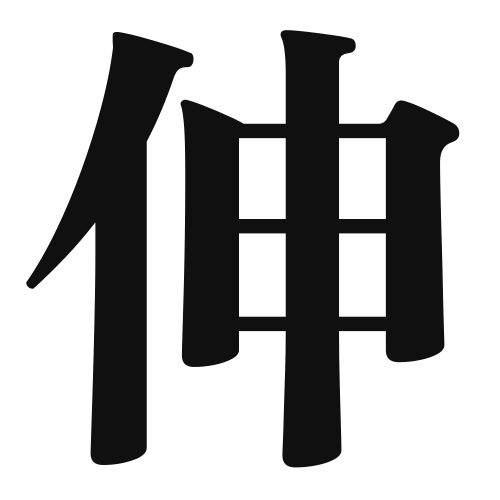1. Overview of Meaning
The kanji “伸” (shin) primarily means “to extend” or “to stretch.” It conveys the idea of growth, expansion, or reaching out, both physically and metaphorically.
2. Formation and Radical
The kanji “伸” is a phonetic compound (形声文字), which combines a semantic component and a phonetic component. The left part, “弓” (bow), suggests a connection to stretching or bending, while the right part, “申” (to say), provides the pronunciation.
The radical of “伸” is “弓,” which relates to actions involving bending or stretching.
3. Examples of Usage
Common words and phrases that include “伸” are:
- 伸びる (nobiru) – to stretch or extend
- 伸ばす (nobasu) – to extend or to grow
- 伸縮 (shinsuku) – expansion and contraction
Example sentences in daily conversation:
- 「手を伸ばして、届く?」 (Can you reach by stretching your hand?)
- 「彼は毎日運動して、体を伸ばしています。」 (He exercises every day to stretch his body.)
4. Synonyms and Antonyms
Similar kanji with related meanings include:
- 拡 (kaku) – to expand, which emphasizes the idea of making something larger.
- 発 (hatsu) – to emit or to develop, which focuses on the idea of emergence or growth.
Antonyms include:
- 縮 (shuku) – to shrink or to contract, which conveys the opposite meaning of “伸.”
5. Cultural and Historical Background
The kanji “伸” is often associated with concepts of personal growth and development in Japanese culture. It reflects the value placed on self-improvement and reaching one’s potential.
Proverbs and idiomatic expressions that include “伸” are:
- 「伸びる木には実がなる」 (A tree that grows bears fruit) – suggesting that growth leads to rewards.
- 「伸び悩む」 (nobinayamu) – to struggle with growth, often used in contexts of personal or professional development.
